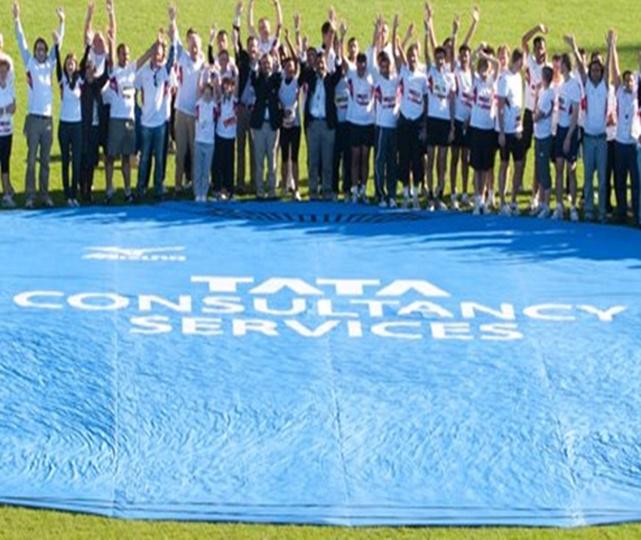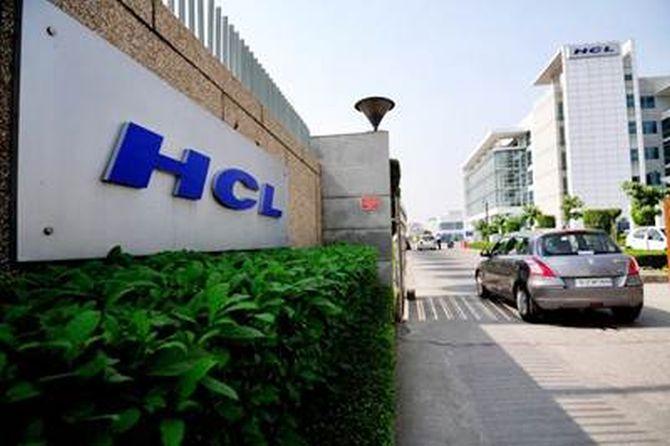Their plan to build a product portfolio will discourage global software vendors such as Oracle, Microsoft and Fidelity, among others, from building a strategic relationship with these big Indian IT firms, reports Debasis Mohapatra.

Domestic information technology services firms such as Tata Consultancy Services and HCL Technologies are likely to witness a part of their services business being cannibalised in the near term.
This is because their plan to build a product portfolio will discourage global software vendors such as Oracle, Microsoft and Fidelity, among others, from building a strategic relationship with these big Indian IT firms.
Though the value of software outsourcing contracts from these global firms are not big and pegged at not more than $10 billion, collaboration with these software majors not only provides Indian IT services firms an opportunity to get new clients from such tie-ups but also helps them develop expertise in those platforms.
Analysts also said the product and platform (P&P) portfolio has to maintain an arm's length with the services business for forging deeper engagement with global majors as any concern over data leakage may lead to litigation.
"The more the Indian companies grow their product and platform business as part of a distinct strategy, the more the chances are for cannibalisation of their services business," said Pareekh Jain, founder of Pareekh Consulting. "So, these firms have to tread very cautiously by building up a Chinese wall between products and services businesses," he added.
Globally, many software vendors, which have their own platforms, collaborate with Indian IT services players to execute large contracts. While domestic IT firms take up IT outsourcing works of these global tech majors, they leverage the latter's software platforms to execute large contracts. So, in a way, both become each other's customers.
Marquee global clients with their own platforms include Microsoft and Oracle in the enterprises space, Fidelity in the financial services domain, Ericsson in the telecom sector, and Epic Systems in the healthcare segment, among others.
"When an IT firm starts using its own platform, which puts it in a direct competition with a global technology vendor, it may not result into a 360 degree partnership with that entity," a former IT outsourcing advisor said.
Among domestic IT majors, TCS and HCL Technologies have shown clear ambitions to build a strong product and platform-led portfolio in their bid to gain more assured revenues from this segment.

For instance, TCS, which reports revenue from products and platforms under regional markets and others, reported 22.6 per cent (yoy) growth from this segment that constituted 18.7 per cent of its overall revenues in Q3 of this fiscal year.
The Mumbai-headquartered company's cognitive automation platform Ignio alone clocked a revenue of $31 million in the first three years of launch that ended in March 2018, and it is eyeing to reach $100 million in the next two years.
However, TCS's efforts to create its own platform were not free of controversies as the company in 2014 had to face litigation from US firm Epic Systems which accused the Indian IT major of stealing trade secrets for building its own healthcare platform. TCS, which has repeatedly denied the allegation, is currently contesting it in US courts.
Apart from TCS, HCL Technologies has also shown clear ambitions to devise a sound product and platform strategy. As a part of this, the Noida-headquartered company bought seven IPs from IBM at a valuation of $1.8 billion in December last year.
From this deal, the company expects to derive higher revenues of $650 million annually from 2021 with an operating margin of about 50 per cent. Emails sent to both TCS and HCL Technologies last week remained unanswered till the time of going to press.
However, as these firms devise strategic plans to emerge major product players in the global IT industry, some analysts are of the opinion that though revenue from the legacy business may dip due to this shift to platform-led growth model, earnings from platforms will more than compensate for this drop in the coming years.
"Products and platform clients tend to buy implementation and maintenance services if provided with competitive rates (unlike SAP and Oracle). This will more than make up for the cannibalised revenues, if any," said Vishwakumar Nandagopal, director & head of India operations at ISG, a technology research and advisory firm.
"It's premature to think that TCS and HCL will become competitors likes Oracle and Microsoft in a true sense," he added.
- Indian IT firms such as TCS and HCL Tech betting big on products and platforms
- This places them in direct competition with global software vendors
- Alliances with firms such as Microsoft, Oracle helps them gain access to the former’s client base
- A clear boundary line between products and services is set to help them drive both businesses











